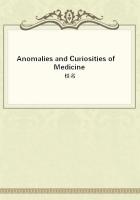THE EXPLANATION.
Mr Monk had been altogether unable to decipher the Duke's purpose in the question he had asked.About an hour afterwards they walked down to the Houses together.Mr Monk having been kept at his office.'I hope I wasn't a little short with you just now,'
said the Duke.
'I did not find it out,' said Mr Monk, smiling.
'You read what was in the papers, and you may imagine that it is of a nature to irritate a man.I knew that no one could answer my question so correctly as you, and therefore I was rather a little eager to keep directly to the question.It occurred to me afterwards that I had been--perhaps uncourteous.'
'Not at all, Duke.'
'If I was, your goodness will excuse an irritated man.If a question were asked about it in the House of Commons who would be the best man to answer it? Would you do it?'
Mr Monk considered a while.'I think,' he said, 'that Mr Finn would do it with better grace.Of course I will do it if you wish it.But he has tact in such matters, and it is known that his wife is much regarded by her Grace.'
'I will not have the Duchess's name mentioned,' said the Duke, turning short upon his companion.
'I did not allude to that, but I thought that the intimacy which existed might make it pleasant to you to employ Mr Finn as the exponent of your wishes.'
'I have the greatest confidence in Mr Finn, certainly, and am on most friendly personal terms with him.It shall be so, if Idecide on answering any questions in your House on a matter so purely personal to myself.'
'I would suggest that you should have the question asked in a friendly way.Get some independent member, such as Mr Beverley or Sir James Deering, to ask it.The matter would then be brought forward in no carping spirit, and you would be enabled, through Mr Finn, to set the matter at rest.You have probably spoken to the Duke about it.'
'I have mentioned it to him.'
'Is not that what would recommend?'
The old Duke had recommended that the entire truth should be told, and that the Duchess's operations should be made public.
Here was our poor Prime Minister's great difficulty.He and his Mentor were at variance.His Mentor was advising that the real naked truth should be told, whereas Telemachus was intent on keeping the name of the actual culprit in the background.'Iwill think it all over,' said the Prime Minister as the two parted company at Palace Yard.
That evening he spoke to Lord Cantrip on the subject.Though the matter was odious to him, he could not keep his mind from it for a moment.Had Lord Cantrip seen the article in the "People's Banner"? Lord Cantrip, like Mr Monk, declared that the paper in question did not constitute part of his usual morning's recreation.'I won't ask you to read it,'said the Duke;--'but it contains a very bitter attack upon me,--the bitterest that has yet been made.I suppose I ought to notice the matter?'
'If I were you,' said the Lord Cantrip, 'I should put myself into the hands of the Duke of St Bungay, and do exactly what he advises.There is no man in England knows so well as he does what should be done in such a case as this.' The Prime Minister frowned and said nothing.'My dear Duke,' continued Lord Cantrip, 'I can give you no other advice.Who is there that has your personal interest and your honour at heart so entirely as his Grace;--and what man can be a more sagacious or more experienced adviser?'
'I was thinking that you might ask a question about it in our House.'
'I?'
'You would do it for me in the manner that--that would be free from all offence.'
'If I did it all, I should certainly strive to do that.But it has never occurred to me that you would make such a suggestion.
Would you give me a few minutes to think about it?' 'I couldn't do it,' Lord Cantrip said afterwards.'By taking such a step, even at your request, I should certainly express an opinion that the matter was one which Parliament was entitled to expect that you should make an explanation.But my own opinion is that Parliament has no business to meddle in the matter.I do not think that every action of a minister's life should be made matter of inquiry because a newspaper may choose to make allusion to it.At any rate, if any word is said about it, it should, Ithink, be said in the other house.'
'The Duke of St Bungay thinks that something should be said.'
'I could not,myself consent even to appear to desire information on a matter so entirely personal to yourself.' The Duke bowed, and smiled with a cold, glittering, uncomfortable smile which would sometimes cross his face when he was not pleased, and no more was then said on the subject.
Attempts were made to have the question asked in a far different spirit by some hostile member of the House of Commons.Sir Orlando Drought was sounded, and he for a while did give ear to the suggestion.But, as he came to have the matter full before him, he could not do it.The Duke had spurned his advice as a minister, and had refused to sanction a measure which he, as the head of a branch of the Government, had proposed.The Duke had so offended him that he conceived himself bound to regard the Duke as his enemy.But he knew,--and he could not escape from the knowledge,--that England did not contain a more honourable man than the Duke.He was delighted that the Duke should be vexed and thwarted, and called ill names in the matter.To be gratified at this discomfiture of his enemy was in the nature of parliamentary opposition.Any blow that might weaken his opponent was a blow in his favour.But his was a blow which he could not strike with his own hands.There were things in parliamentary tactics which even Sir Orlando could not do.















